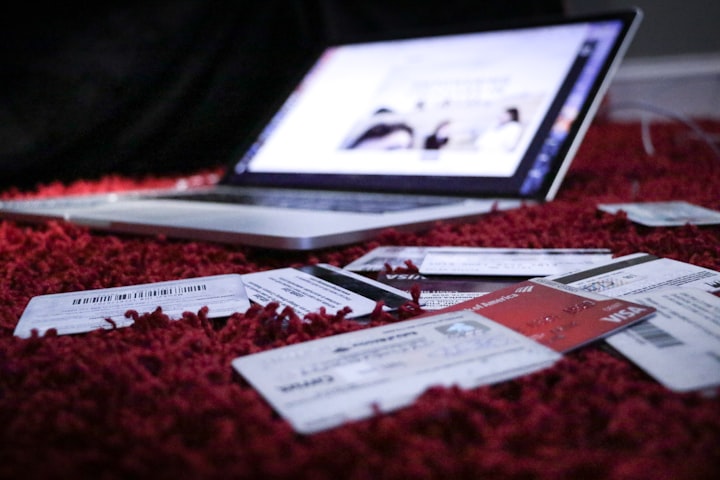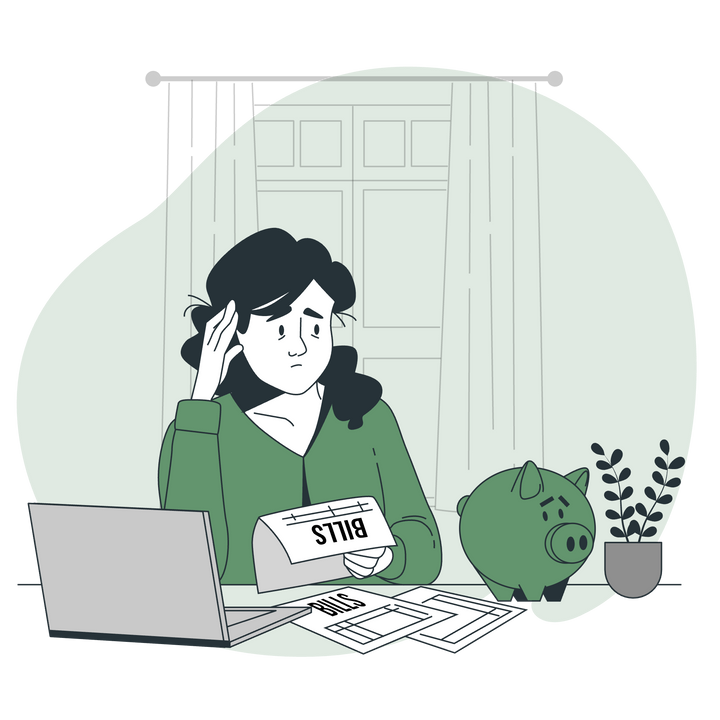High Credit Card Debt: Survey Reveals Disturbing Trend Among Americans
High-interest rates, mass layoffs, and inflation brew trouble for the average American. Let's look at this perfect storm and what the numbers show.

Hey Savvy savers and money mavens, Pepper here! Back again to discuss a high-traffic topic in the finance space right now– disturbingly high credit card debt. (And not the usual amount we recommend staying away from).
One thing you will NEVER see Salt or I suggest is falling prey to the schemes and themes of credit card providers – mainly because it is quite expensive to dig yourself out of that hole. Instead, we advocate for credit card use as a tool rather than a makeshift emergency fund.
Unfortunately, a recent survey found that Americans aren’t heeding the warning and are paying for it in a big way. Let’s unpack the details on what’s going on, why everyone seems to be loading up on the extra liability, and how to break out from the pack.
The Problem(s)
America as a whole has a debt problem (shocker). But this is going beyond being a little loose with finances around the holidays, this is the product of several issues compounding to create a near-perfect storm for debt pile up. Let’s look at what’s happening:
- Pandemic: Some would argue that the pandemic is “over”, but the blowback is very much in effect and Americans are still playing catch-up. Many were put in difficult positions over the last few years that caused them to spend up their savings, rack up debt and pay a ton in borrowing fees and interest.
- Mass Layoffs: Been on LinkedIn lately (spoiler, it’s depressing) companies are pulling the plug on whole departments and leaving many to wonder “What’s next?”. And these aren’t average joe positions, we’re talking about Google, Twitter, and Amazon- and that’s not even scratching the surface. The so-called dream companies, where many park their careers and stay for the long haul. Now we have the brightest minds duking it out on the job market.
- Inflation: The economy got hit with a 1-2 punch with inflation being the TKO for many households. The price for seemingly everything has soared and is making an ultra-slow decline back to “normal” (whatever that is). In the meantime, your dollar is not going as far as it used to. So if you’re feeling like you’re making life decisions at the grocery store trying to decide between generic and name-brand you’re not alone.
The outcome of these three events is composing a deterioration of the economy, purchasing power, and the average American savings account.
The “Debt” Data
From The Annual Emergency Savings Report, there was a slew of insight into the debt issue. Including where money has gone, how prices have risen, and the growing debt. Here are the numbers:
- 36% of consumers said they have more credit card debt than savings
- 39% said they have fewer emergency savings now than a year ago
- 25% said they were paying for a large expense with a credit card

From the chart above, you can see where all of your money may be drifting off to. These were the common answers when consumers were questioned about the cause of saving less:
- 68% said it was due to inflation and rising prices
- 48% said it was due to rising interest rates
- 44% said it was due to a change in income or unemployment
- 44% said it was other factors
Tips on Avoiding Credit Card Debt
22% interest on any credit card balance is outrageous, so the best defense is a great offense. It's much easier to avoid the debt altogether than trying to pay it off. Here are some tips for avoiding credit card debt:
- Use cash-back rewards to pay off your balance: If your credit card offers cash-back rewards, use them to pay off your balance. This way, you're essentially getting a discount on your purchases and avoiding interest charges.
- Use credit card apps to track your spending: Many credit card issuers offer apps that allow you to track your spending in real time. This can help you stay on top of your expenses and avoid overspending.
- Freeze your credit card: If you're struggling with overspending, consider freezing your credit card. This will prevent you from using it until you thaw it, giving you time to reconsider your purchase and avoid impulse buys.
- Use the envelope method: Cash is still king! The envelope method involves allocating a certain amount of cash for each spending category and putting it in an envelope. This can help you stay within your budget and avoid overspending on your credit card.
- Negotiate a lower interest rate: If you have a high-interest rate on your credit card, consider negotiating with your issuer for a lower rate. This can help you save money on interest charges and pay off your balance faster.
Peppers Takeaways
It's never been a worse time to get yourself into credit card debt. (Or any debt for that matter.) The inflation woes may be done hitting their worse peak but they will likely remain up there for the next few years 🙄. The Fed's "Ideal" rate is 2% but we likely won't see that through at least 2024. In the meantime:
- ✅Stay aggressive with your budget
- 💰Save if you can but at the very least don't overspend
- 💳Negotiate with your credit card issuer (crazier things have happened)
More From Salt & Pepper Finance:







Comments ()